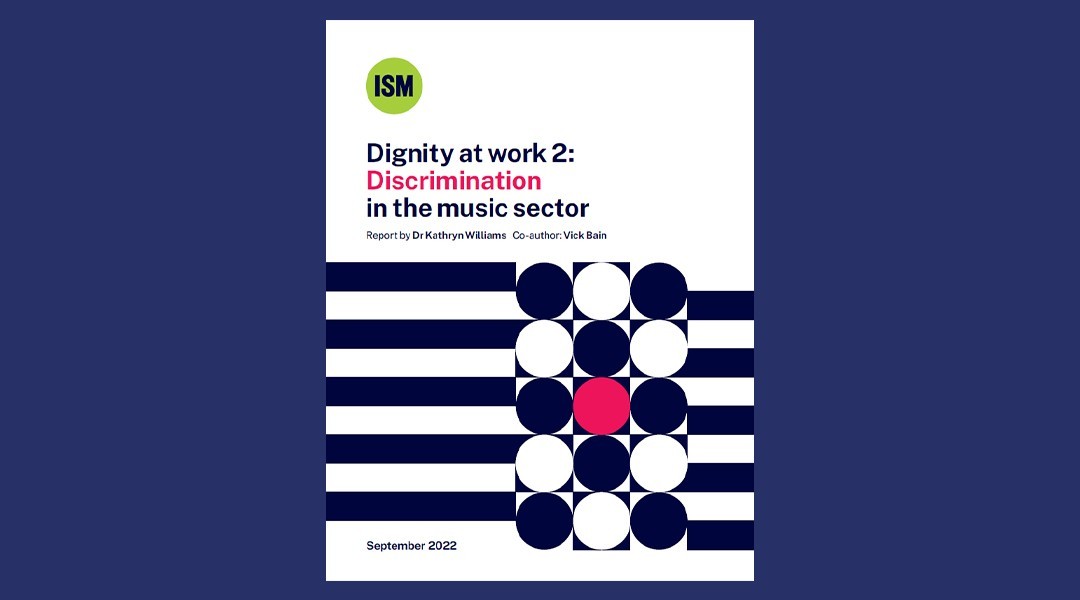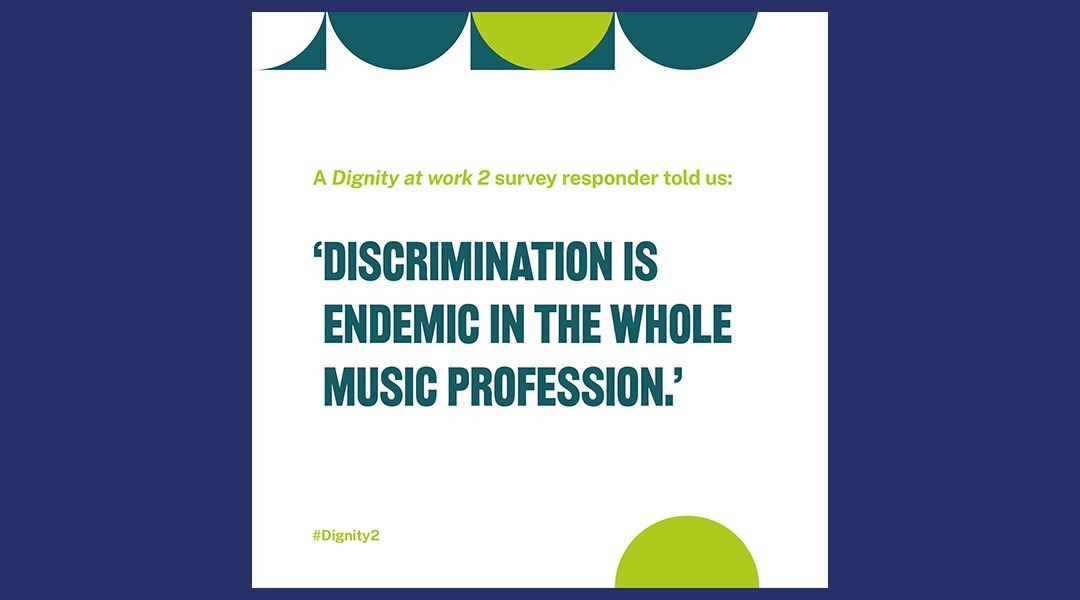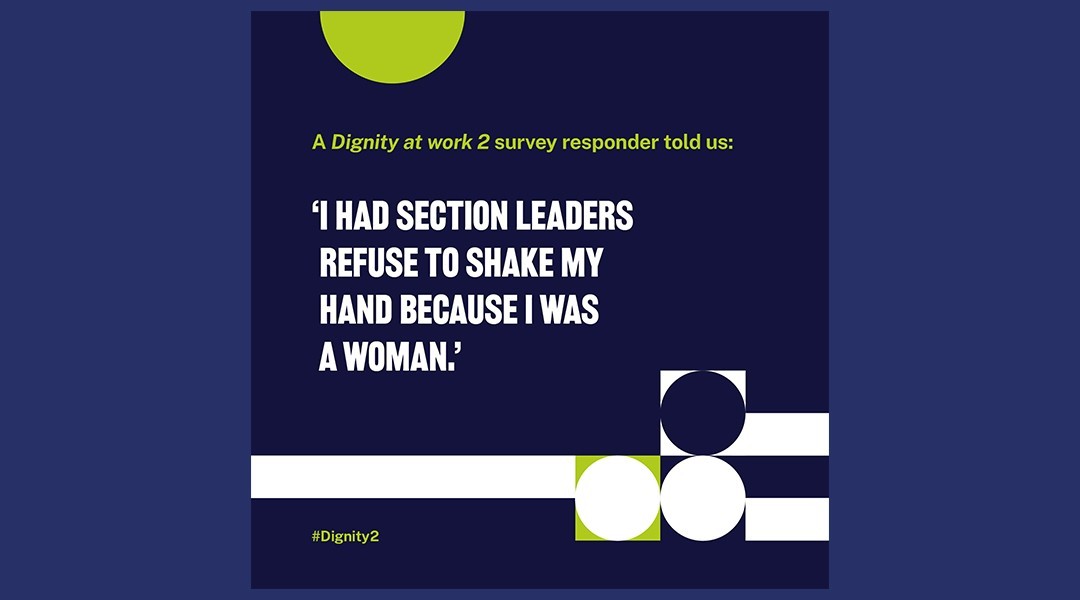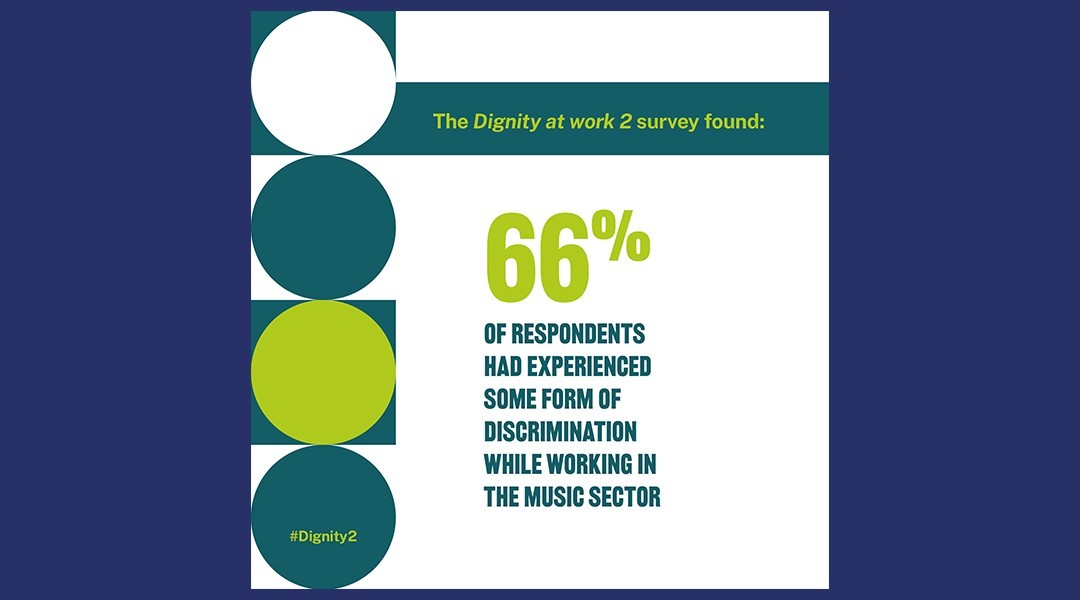Dignity at work | Q&A with Kathryn Williams
19th December 2022
Articles NMC RecordingsA conversation with Kathryn Williams, Research & Policy Officer in Equality, Diversity, and Inclusion for the Independent Society of Musicians. We discuss the ISM's major new report, Dignity at work 2, which exposes the devastating scale of discrimination (including sexual harassment and racism) in all parts of the music sector, and the actions needed for real change to happen. Reflecting on her own experiences as a freelance soloist and orchestral musician, Kathryn also describes the advice and support available for composers and performers currently working in music who may have faced discrimination in their place of work.
Can you tell us about your work as a researcher and how you came to take up this role as Research & Policy (EDI) Officer with the ISM?
My research has been centred around the visibility of breathing through collaborative composition, music and disability, and flute performance practice, which included commissioning over 100 pieces limited to a single breath through Coming Up for Air.
During the first lockdown, I was asked by the Independent Society of Musicians to write a literature review on aerosol transmission in music performance settings, which was fascinating work that contributed to Covid-related guidance provided to professional and educational music settings. Based on the success of this work, I was appointed as the ISM’s Research & Policy Officer in Equality, Diversity, and Inclusion in March this year. It’s a part-time role that I do from home north of Manchester, and it fits in well alongside my freelance performing work and my caring responsibilities.
My first project has been to revisit the research into discrimination in the music sector that the ISM undertook in 2018, when they investigated the prevalence of discrimination in both the profession and in higher education as a response to the #MeToo movement. The purpose of revisiting this was to determine whether there had been any change within the sector. The report, Dignity at work 2: Discrimination in the music sector, was published in September 2022.

The report is only the beginning; it sets out recommendations for both government and music sector organisations, and through our campaign #Dignity2Work we are working to deliver vital and measurable changes for the music workforce. We are currently collecting signatures in support of an open letter to Minister for Women and Equalities, Kemi Badenoch MP, which outlines the actions needed from government to make music workplaces safer for freelancers and highlights the economic impact of workplace discrimination.
What are the most important points you took away from the report?
The new data suggests that the situation has worsened for the music workforce: in 2018, 47% of respondents reported having experienced some form of discrimination at work; four years on, this figure has risen to 66%. Some of the headline findings include that 78% of female respondents and 88% of freelancers reported to have experienced some form of discrimination at work. For 94% of the freelancers, there were no clear procedures for reporting this behaviour (this includes any type of direct or indirect discrimination, harassment, or victimisation in relation to protected characteristics under the Equality Act 2010, such as age, disability, race, and sex). Having worked as a freelancer myself for over 11 years, I’ve heard plenty of stories and had my own experiences of discrimination, so while I did not expect a rosy picture, 94% is truly an astounding figure.

What do you think are the most important steps that need to be taken for change to happen?
Our calls to government include amending legislation that will extend protections under the Equality Act 2010 to self-employed people, reintroducing rights around third-party harassment, and extending the time limit for bringing forward discrimination claims from three to six months.
Within the music sector, it is essential that there are robust policies in place that are provided to all people engaged to work – whether they are full employees or just coming in for a one-off session. Types of discriminatory behaviours can be very broad and intersectional – these must be clearly defined, and organisations need to promote a zero-tolerance policy. Organisations and individuals can also sign up to the ISM/MU Code of Practice, which is a set of principles that aim to eradicate bullying, harassment, discrimination, and other forms of inappropriate behaviour within the sector. It is also an aid for employers in meeting their legal requirements as well as setting out a shared vision for promoting and maintaining a positive working culture.

What support can the ISM provide anyone who may have experience discrimination at work?
The ISM has a team of six legal advisors led by the Chief Executive Officer, Deborah Annetts, who was previously a Partner in a City law firm specialising as a discrimination employment solicitor. Last year, the legal team dealt with over 1,600 cases raised in concern to members’ work as musicians. These include issues around contracts, unpaid fees, employment status and workplace discrimination. ISM members have unlimited access to the in-house legal team. The ISM is the only membership organisation to offer this level of comprehensive legal support and representation for musicians. The ISM supported a member all the way to the Supreme Court to secure a victory on visiting music teachers’ holiday pay. There are resources available on the ISM Trust website, including webinars on individuals’ rights around discrimination as well as for employers understanding their obligations.
What issues/problems do you think are most prevalent in particularly the classical music world, and for composers/performers?
The classical music world is very small and often people do not report their experiences of inappropriate behaviour, even when it is unlawful, as they fear losing future work and damaging their own reputation. The survey recorded numerous examples of women being pressured by those in positions of power (including conductors, promoters, and fixers) into offering sexual favours to advance their careers or being encouraged to dress more provocatively to get booked for work. Respondents feared not being booked again if they refused to comply or complained about the behaviour.
Getting paid work can be incredibly competitive for composers, who can feel pressured to work for very little or no compensation, and I regularly see exploitative calls for scores where even the top prizes grossly undervalue their time. It is good to see these called out on social media. The ISM has a Composers' Pack available to download, which includes advice, checklists, and template contracts to help composers protect their rights and get a fair deal when offered a commissioning opportunity, publishing, or synchronisation agreement.

What advice would you give to someone near the beginning of their career in music regarding their employment rights?
When I was starting out, no one was talking about employment rights; at conservatoire the focus is on being ‘good enough’ to get asked in the first place. Now I often think, ‘I wish I’d known this before!’ I would advise them to become unashamedly armed with information on their rights. They can get started with this by visiting the ISM Dignity at Work webpage which serves as a hub of resources, and they can contact the ISM anytime they have concerns. Something else important to note is that experiencing any type of discrimination can take a huge toll on mental health and ultimately on the quality and enjoyment of your work. ISM members are entitled to a counselling service, and the website offers a list of organisations who can offer further support.
Please sign up for updates on our #Dignity2Work campaign and add your voice to strengthen our calls to make it safer to work in music.
Click the link below to sign the ISM's open letter to the Minister for Women and Equalities, Kemi Badenoch MP, urging the Government to take action to make the music sector a safer, fairer place to work.


